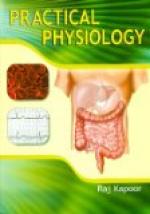“I never smoke because
I have seen the most efficient proofs of the
injurious effects of tobacco
on the nervous system.”—Dr.
Brown-Sequard, the eminent
French physiologist.
“Tobacco, and especially cigarettes, being a depressant upon the heart, should be positively forbidden.”—Dr. J. M. Keating, on “Physical Development,” in Cyclopoedia of the Diseases of Children.]
201. Effect of Tobacco upon the Heart. While tobacco poisons more or less almost every organ of the body, it is upon the heart that it works its most serious wrong. Upon this most important organ its destructive effect is to depress and paralyze. Especially does this apply to the young, whose bodies are not yet knit into the vigor that can brave invasion.
The nicotine of tobacco acts through the nerves that control the heart’s action. Under its baneful influence the motions of the heart are irregular, now feeble and fluttering, now thumping with apparently much force: but both these forms of disturbed action indicate an abnormal condition. Frequently there is severe pain in the heart, often dizziness with gasping breath, extreme pallor, and fainting.
The condition of the pulse is a guide to this state of the heart. In this the physician reads plainly the existence of the “tobacco heart,” an affection as clearly known among medical men as croup or measles. There are few conditions more distressing than the constant and impending suffering attending a tumultuous and fluttering heart. It is stated that one in every four of tobacco-users is subject, in some degree, to this disturbance. Test examinations of a large number of lads who had used cigarettes showed that only a very small percentage escaped cardiac trouble. Of older tobacco-users there are very few but have some warning of the hazard they invoke. Generally they suffer more or less from the tobacco heart, and if the nervous system or the heart be naturally feeble, they suffer all the more speedily and intensely.
Additional Experiments.
Experiment 93. Touch a few drops of blood fresh from the finger, with a strip of dry, smooth, neutral litmus paper, highly glazed to prevent the red corpuscles from penetrating into the test paper. Allow the blood to remain a short time; then wash it off with a stream of distilled water, when a blue spot upon a red or violet ground will be seen, indicating its alkaline reaction, due chiefly to the sodium phosphate and sodium carbonate.
Experiment 94. Place on a glass slide
a thin layer of defibrinated
blood; try to read printed matter through
it. This cannot be done.




